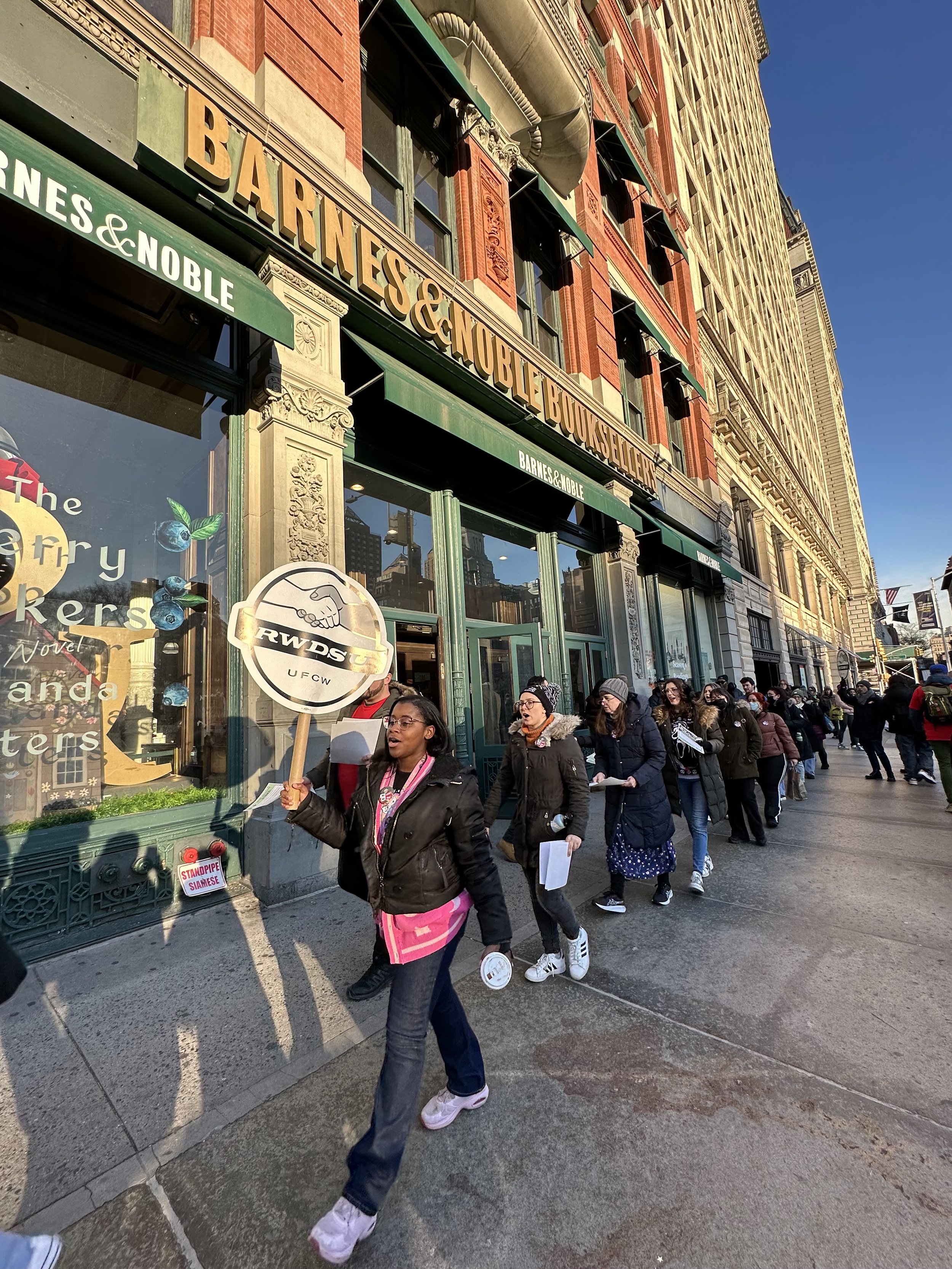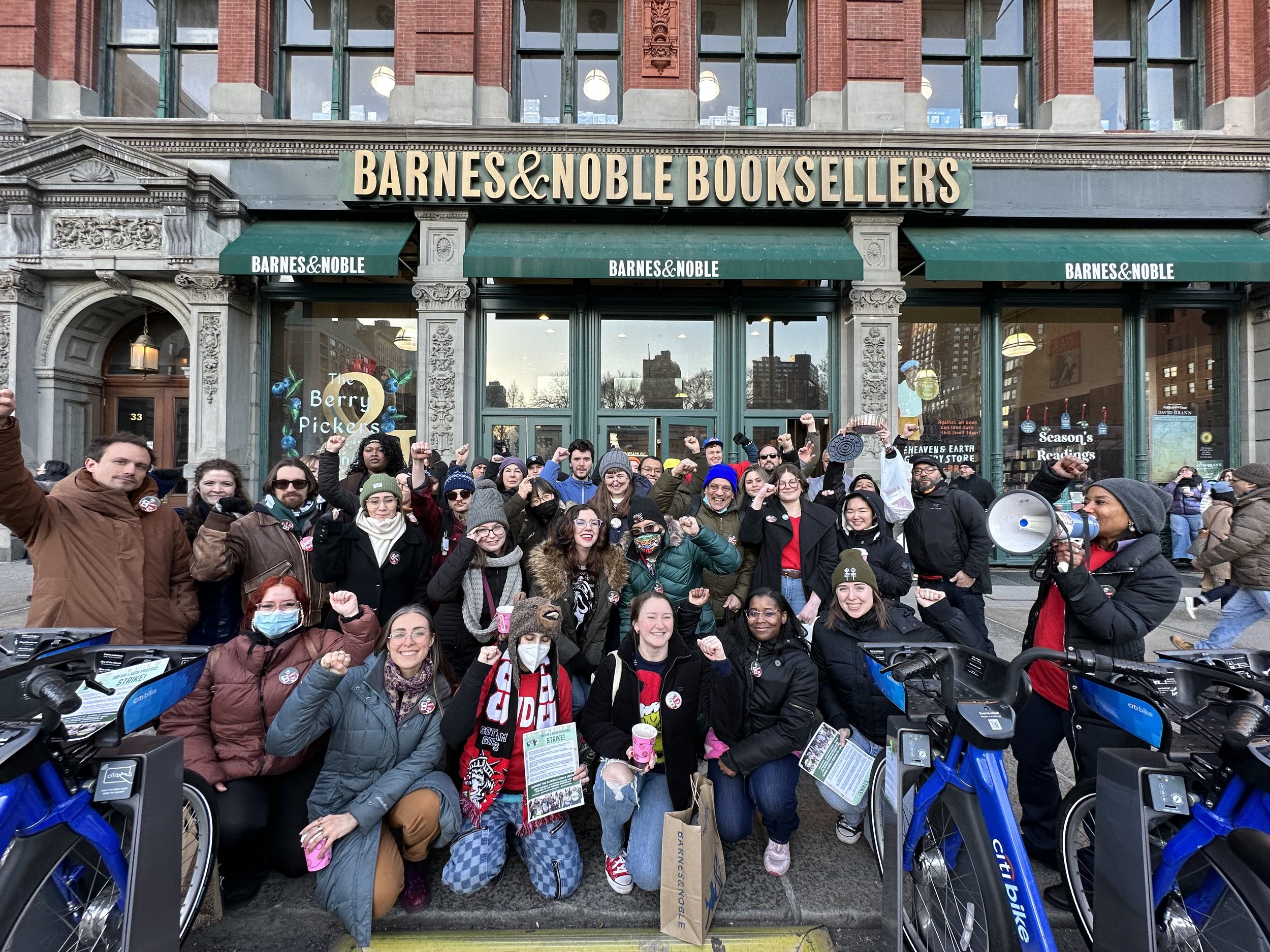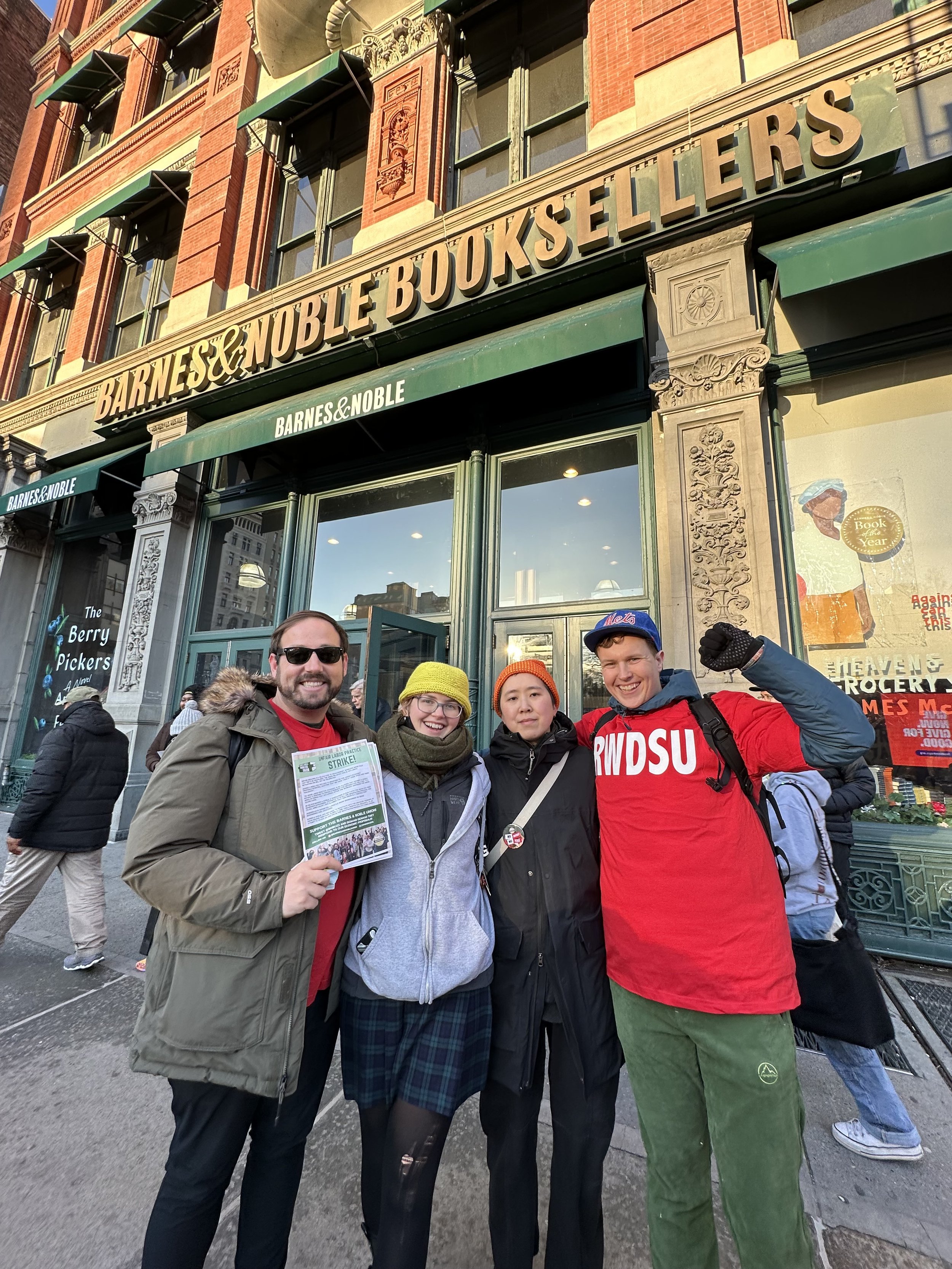Barnes & Noble Workers Walk Out in NYC; Set Up Picket Line
“It’s crazy that one of the biggest bookstores in the city is one of the poorest-paying,” Photos courtesy of Chelsea Connor.
By Steve Wishnia
Editor’s Note: This story has been updated to include a late statement from Barnes & Noble.
Just before 3 p.m. on the Friday before Christmas, workers at the Barnes & Noble flagship bookstore on Union Square walked out for two hours to protest management’s refusal to bargain with their recently formed union. Shoppers approaching the store’s dark-green doors got greeted with chants of “Picket Line Means Don’t Cross!”
“They unilaterally canceled our last negotiation meeting,” senior bookseller Jessica Sepple, of Bushwick, told Work-Bites. “We had to find out through our manager.”
The meeting had been scheduled for the previous Monday, Dec. 18. “We had to chase her down,” Sepple says of the company’s negotiator. The only response they got, she adds, was an email the next morning “claiming that we canceled the session, which is not true.”
“[Management’s] proposals get worse every time we meet, they neglected to even begin to address economic issues, and their demands include completely unreasonable asks.”
Workers at the Union Square store voted almost unanimously in early June to join the Barnes and Noble Workers Union, affiliated with the Retail, Wholesale and Department Store Union. Negotiations for their first contract began in September. The union handed over its first economic proposal more than two weeks ago, says RWDSU spokesperson Chelsea Connor, but has not yet received a response from the company.
The Union Square bargaining unit contains 80 to 90 workers. Workers at Barnes & Noble’s Park Slope store also voted to join the RWDSU last summer, but the company has insisted on bargaining with the two units separately, according to the union.
“We came into this expecting some pushback, but we at least expected participation. [Barnes & Noble] have failed to do that.”
Low pay is the biggest issue: Barnes & Noble pays minimum wage. Workers represented by the RWDSU at independent bookstores, such as McNally Jackson, Book Culture, and Greenlight Bookstore in Brooklyn, get paid more, the union says.
“It’s crazy that one of the biggest bookstores in the city is one of the poorest-paying,” says Sepple, who has worked at the Union Square store for two years. “We keep being told we should be excellent booksellers, but we are not being compensated for it.”
“The union encouraged a walkout by a small number of employees claiming the company is negotiating in bad faith,” a Barnes & Noble spokesperson said in a statement. “This is not true. In fact, it is the pot calling the kettle black. The union presented significant economic demands on Nov. 29, and only one bargaining meeting has been held subsequently. It is a deeply regrettable situation and we look forward to continuing our good-faith discussions with the union in the new year.”
The company, which was acquired by a British private-equity firm in 2019, touts itself as “the Internet’s largest bookstore” and runs about 600 bookstores in the U.S. Workers at five of those stores and one in B&N’s separate college-bookstore chain have joined the RWDSU since last spring.
“Their proposals get worse every time we meet, they neglected to even begin to address economic issues, and their demands include completely unreasonable asks,” Union Square senior bookseller Aaron Lascano said in a statement released by the RWDSU. “Would a company that respects its workers demand a contract that refuses us union representation, or that includes language for taking workers to court? That’s what they want in this contract, and that’s what we're fighting against.”
Barnes & Noble CEO James Daunt joined a negotiating session earlier in December, says Sepple, but he spent an hour “going through his résumé with us instead of bargaining with us.” She also described him as “unprepared.”
“We came into this expecting some pushback, but we at least expected participation,” she adds. “They have failed to do that.”
No further talks are currently scheduled. Dates for them were supposed to be set at the cancelled Dec. 18 meeting, according to the union.



